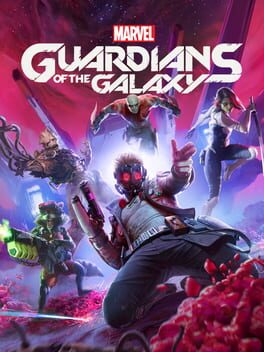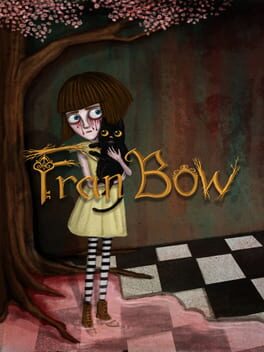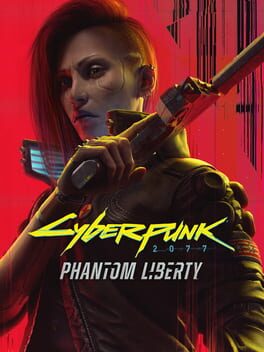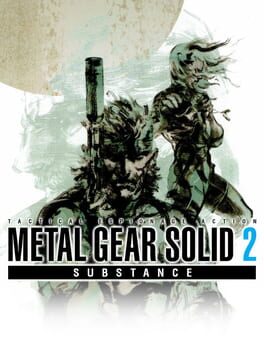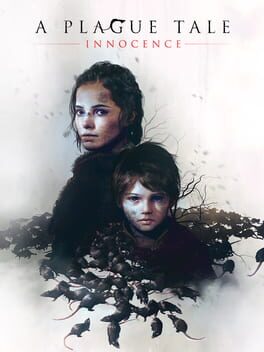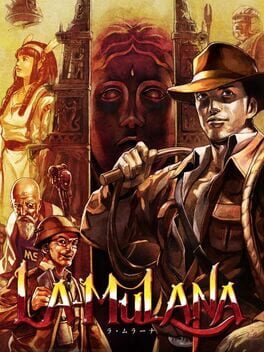14 reviews liked by jonasbonas
This review contains spoilers
O Fim de uma Era
Estou escrevendo isso logo após zerar o jogo, muitas emoções e coisas para processar ao mesmo tempo mas vou dizer isso: Esse jogo é muito para processar, seja história, conteúdo secundário, minigames, combate, etc; ao ponto de escrever uma review falando de cada aspecto dele ser só exaustante. Então vou tentar falar o que estou sentindo: Like a Dragon: Infinite Wealth está longe de ser um jogo perfeito, principalmente com o seu péssimo pacing narrativo na segunda parte da campanha, mas eu não consigo olhar para tudo que eu joguei no último mês e fingir que eu não acabei de ter uma das melhores experiências na mídia de videogames. Esse jogo marca o fim da franquia do jeito que conhecíamos, o fim de Kiryu, o fim das lendas do Tojo, o fim dos 7 jogos que levaram até aqui... E após jogar essa franquia inteira e olhar para trás, só consigo dizer:
Obrigada Yakuza/Like a Dragon, obrigada RGG.
Estou escrevendo isso logo após zerar o jogo, muitas emoções e coisas para processar ao mesmo tempo mas vou dizer isso: Esse jogo é muito para processar, seja história, conteúdo secundário, minigames, combate, etc; ao ponto de escrever uma review falando de cada aspecto dele ser só exaustante. Então vou tentar falar o que estou sentindo: Like a Dragon: Infinite Wealth está longe de ser um jogo perfeito, principalmente com o seu péssimo pacing narrativo na segunda parte da campanha, mas eu não consigo olhar para tudo que eu joguei no último mês e fingir que eu não acabei de ter uma das melhores experiências na mídia de videogames. Esse jogo marca o fim da franquia do jeito que conhecíamos, o fim de Kiryu, o fim das lendas do Tojo, o fim dos 7 jogos que levaram até aqui... E após jogar essa franquia inteira e olhar para trás, só consigo dizer:
Obrigada Yakuza/Like a Dragon, obrigada RGG.
Fran Bow
2015
finished this today. what an incredible game. unique concept reminiscent of alice in wonderland (but much, much bloodier - and much more disturbing), but with so much unique storytelling & lore with it. the art style is amazing, and for a "point & click" type of game (which i usually don't enjoy), it's exceptional. the score is also noteworthy, with world-building notes of doom & dread making up the soundscape. the concept of realms and ultrareality is so creative and original, i have to applaud all the artistry. the humor is also great, my friend & i laughed a lot throughout this game. i can without a doubt say that it's a journey that became one of my favorite experiences with a video game. the puzzles are pretty challenging, and i'm someone who is really good at puzzle solving, so being stumped is something i usually don't have to work through so much. 10/10 amazing video game. if you can handle the gore & the disturbing aspects of it, then you definitely won't be disappointed with the quality level fran bow achieves. highly recommend.
Fran Bow
2015
Fran Bow é um jogo de terror psicológico que investiga a mente confusa e sombria de uma criança com problemas mentais. O jogo inclui muitos cenários distorcidos e perturbadores, uma atmosfera misteriosa, personagens interessantes e muitos pontos de trama para manter o jogador preso o tempo todo.
E muitas referências a "Alice no país das maravilhas"
Me chama bastante atenção o conceito de alternar entre estados de tempo e realidades quando se trata de puzzles e progressão, então é fantástico ver um jogo de alta qualidade utilizá-lo.
Já o seu ritmo é bastante lento devido à jogabilidade de point and click, então isso pode ser um ponto positivo ou negativo, dependendo de sua perspectiva.
Embora tenha gostado do jogo, não posso dizer que fui um grande fã do final. É muito inconclusivo e deixa o jogador com muitas dúvidas. Normalmente não me importo com finais abertos, mas aqui pensei que poderia ter sido tratado melhor.
Fran Bow transborda imersão, percorre perfeitamente a linha entre a fantasia infantil e os horrores aterrorizantes e é elaborado com muito amor e cuidado. A um nível mais pessoal, eu acompanhei várias pessoas jogando Fran bow durante minha infância (eu tinha 11 aninhos) e desde então tornou-se uma grande parte dos meus interesses, das coisas que gosto e um pouco de quem sou como pessoa.
É difícil colocar este jogo em palavras. É algo que você tem que experimentar por si mesmo
E muitas referências a "Alice no país das maravilhas"
Me chama bastante atenção o conceito de alternar entre estados de tempo e realidades quando se trata de puzzles e progressão, então é fantástico ver um jogo de alta qualidade utilizá-lo.
Já o seu ritmo é bastante lento devido à jogabilidade de point and click, então isso pode ser um ponto positivo ou negativo, dependendo de sua perspectiva.
Embora tenha gostado do jogo, não posso dizer que fui um grande fã do final. É muito inconclusivo e deixa o jogador com muitas dúvidas. Normalmente não me importo com finais abertos, mas aqui pensei que poderia ter sido tratado melhor.
Fran Bow transborda imersão, percorre perfeitamente a linha entre a fantasia infantil e os horrores aterrorizantes e é elaborado com muito amor e cuidado. A um nível mais pessoal, eu acompanhei várias pessoas jogando Fran bow durante minha infância (eu tinha 11 aninhos) e desde então tornou-se uma grande parte dos meus interesses, das coisas que gosto e um pouco de quem sou como pessoa.
É difícil colocar este jogo em palavras. É algo que você tem que experimentar por si mesmo
de fato é uma grande experiência quando vc inicia o jogo e logo de cara você percebe que voce vai sofrer muito em sua jornada. sekiro é provavelmente a melhor mídia que envolva samurais que eu consumi até agora, a fromsoftware realmente se superou na criação de todo esse mundo, sendo para a era sengoku oq o dark fantasy é pra dark souls. Esse jogo tem com certeza o combate mais difícil e sensacional já feito e vc realmente se sente punido quando você leva um único dano ou deixa algo passar, mesmo se for uma parada completamente minúscula mas que faz uma diferença enorme na gameplay (principalmente comigo que só pq não achei um mercador e não fiz uma quest dificultei minha gameplay inteira). A progressão desse jogo é maravilhosa e você realmente sente que a cada vez que você explora uma área e acha um item novo como uma semente de cabaça e um conto de oração o seu personagem evolui e você também se sente mais forte, e em jogos souls isso é uma parada essencial. Diferente de dark souls onde voce upa o seu personagem até o limite e isso faz grande diferença na progressão, no sekiro não faz pq não adianta você ter seu personagem até o talo de poder de vc não souber desviar e dar perry nos ataques inimigos. A última Boss fight é com certeza a mais épica e punitiva do jogo inteiro que praticamente te obriga a passar por umas duas fases sem levar um único dano pra poder passar pelas duas últimas (que são o cúmulo da dificuldade). A única reclamação minúscula que eu poderia fazer é que as vezes a gente simplesmente não sabe pra onde ir pq a passagem que vc tem pra avançar no mapa pode ser literalmente um buraco minúsculo onde uma pessoa com visão biônica vê (principalmente a parte dos monjes malditos). E também tem uns inimigos no jogo que vc pode derrotar usando uns glitches muito idiotas (eu confesso eu usei) e o ideal seria todas as batalhas serem venciveis sem esse tipo de coisa.
De modo geral é um jogo excepcional e 10/10, o melhor que já joguei e espero que exista alguma continuação ou DLC daqui a alguns anos
De modo geral é um jogo excepcional e 10/10, o melhor que já joguei e espero que exista alguma continuação ou DLC daqui a alguns anos
Un exemple, une leçon, un chemin à suivre pour tous les jeux sur comment faire un DLC qui sublime l'œuvre de base.
On va pas se mentir, l'extension c'est pas The Old Hunters, c'est pas The Ringed City, mais ça reste quand même Phantom Liberty putain, pour tout le contenu que ça propose et les additions VASTES apportées au jeu de base on a rarement vu ça je pense.
Scénario qui excellent du début à la fin même si y'a des lenteurs à certains moments mais faut comprendre le contexte avec les régimes politiques etc... mais les moments lents sont facilement comblés par l'abondance de quêtes annexes EXCELLENTES mises à notre disposition avec les contrats de Mr.Hands que j'ai trouvé géniaux, les contrats de véhicules qui sont cool à faire même si c'est souvent le même schéma, bref en somme c'est pas une histoire basique et linéaire y'a eu de la profondeur ajoutée.
Le DLC peak clairement à son début et à sa fin, mais ces moments là c'est vraiment du jamais vu que ça soit dans le storytelling où ils se sont surpassés, chaque dialogue qui semble résonner au fond de nous puisque chaque personnage nous parle droit dans le blanc des yeux avec des émotions et c'est quelque chose qui se fait exclusivement chez cyberpunk, cette authenticité chez les personnages qui les rend encore plus humain que possible et ça touche le joueur, les choix des dialogues sont riches et on se pose souvent des questions avant de répondre...
Ils se sont clairement surpassés, même si Dogtown n'est pas une ville complète ils ont quand même su capturer une ambiance militaire intrinsèque, et réussir à se démarquer après avoir conçu une ville et ses quartiers ça relève de l'incroyable donc grand respect à CDPROJEKTRED encore une fois et ils ne m'ont pas déçu.
Cyberpunk est un jeu qui a su vieillir comme du bon vin et à chaque fois que je retourne sur le jeu je l'aime un peu plus.
On va pas se mentir, l'extension c'est pas The Old Hunters, c'est pas The Ringed City, mais ça reste quand même Phantom Liberty putain, pour tout le contenu que ça propose et les additions VASTES apportées au jeu de base on a rarement vu ça je pense.
Scénario qui excellent du début à la fin même si y'a des lenteurs à certains moments mais faut comprendre le contexte avec les régimes politiques etc... mais les moments lents sont facilement comblés par l'abondance de quêtes annexes EXCELLENTES mises à notre disposition avec les contrats de Mr.Hands que j'ai trouvé géniaux, les contrats de véhicules qui sont cool à faire même si c'est souvent le même schéma, bref en somme c'est pas une histoire basique et linéaire y'a eu de la profondeur ajoutée.
Le DLC peak clairement à son début et à sa fin, mais ces moments là c'est vraiment du jamais vu que ça soit dans le storytelling où ils se sont surpassés, chaque dialogue qui semble résonner au fond de nous puisque chaque personnage nous parle droit dans le blanc des yeux avec des émotions et c'est quelque chose qui se fait exclusivement chez cyberpunk, cette authenticité chez les personnages qui les rend encore plus humain que possible et ça touche le joueur, les choix des dialogues sont riches et on se pose souvent des questions avant de répondre...
Ils se sont clairement surpassés, même si Dogtown n'est pas une ville complète ils ont quand même su capturer une ambiance militaire intrinsèque, et réussir à se démarquer après avoir conçu une ville et ses quartiers ça relève de l'incroyable donc grand respect à CDPROJEKTRED encore une fois et ils ne m'ont pas déçu.
Cyberpunk est un jeu qui a su vieillir comme du bon vin et à chaque fois que je retourne sur le jeu je l'aime un peu plus.
Metal Gear Solid 2 é facilmente uma das melhores continuações que eu já vi na minha vida, expandindo no universo e lore dos jogos anteriores, enquanto elabora na mensagem, cria novos significados, e subverte expectativas. A jogabilidade é muito mais polida e isso deixa ela extremamente mais divertida e variada. Meio difícil falar sobre esse jogo em profundidade sem spoilers, então paro por aqui.
DA aux poils. La relations entre les deux personnage principal aurait pu être plus aboutit à mon goût car elle fait tache dans certaines scènes ou l'on peut en déduire que c'est pour accélérer l'intrigue. L'IA à quelques petit problèmes mais pas de quoi poser problèmes pendant la majorité du jeu. Le rythme est bien géré mais en contrepartie les séquences de gameplay sont très linéaire et unilatérale, le level-design scripté est très restrictif et empêche de prendre des libertés mais c'est un sacrifice acceptable. J'ai bien aimé la volonté attribué aux placement de la caméra qui est trop peu utilisée dans le média du jeux-vidéo. Ici certaines scènes sont bien plus impactante alors que les graphismes ne suivent pas mais la mise en scène allié au blocking permet de très beau symbolisme et de belles images malgré un jeu pas si beau donc bravo. Mention spéciale pour les comédiens qui font tous du bon travail je trouve.
Globalement un jeux sympa
Globalement un jeux sympa
La-Mulana
2012
text by Bennett
★★★★
“LIKE ALL THE BEST THINGS IN LIFE, NOT FOR KIDS.”
Let’s talk about difficulty in games.
In the early days, games were usually written, drawn, coded and directed by one lone nerd. The nerd usually had around six weeks to produce a game which would suck down a billion coins in video arcades worldwide. The nerd’s goal was onefold: the game had to suck down as many coins as possible.
The obstacle in the path of the nerd’s goal was also onefold. Because of time and manpower constraints, the game would have around twenty minutes worth of unique content, meaning that players could quickly become bored, and take their precious coins elsewhere. Thus there was a problem: videogames could not reach commercial success until the obstacle could be overcome and the goal could be met.
In 1980, Eugene Jarvis solved the problem at Williams when he was programming ‘Defender‘: he made the game amazingly hard, and it went on to suck down more coins than any other game other than Pacman. (Full disclosure: these facts have been dramatized.)
The eighties saw a large number of very difficult games introduced into arcades and even into homes. Of course, on a home console, Jarvis’ elegant solution for attracting coins to the slot was irrelevant; every sale of a cartridge, disk or a tape was – and is – final. But since many of the most popular games were written for the arcades and ported for the home, the difficulty remained.
In the 90s, though, the arcades gradually died, and there was no longer any commercial reason for games to be hard. And gradually, the difficulty went away. The old Prince of Persia gave you no option to save your game, and one hour to finish the entire game. The new Prince of Persia gives you a rewind button. Every PC game lets you save at will, inching through the game by trial and error like a climber on a two-inch safety rope, because they get much lower review scores if they do not. Games today offer step-by-step tutorials, balloon help, and almost never require you to read the manual. It’s not a matter of controversy: modern games are easy.
Every year a survey tells us that the median age of gamers has increased. Last year, the average US gamer was 33. This means that majority of today’s gamers were weaned on games which were exceedingly difficult. But they cannot buy games to test their skills and their patience. They are like Spartan warriors or Vikings who have been forcibly migrated to modern Sweden.
It is no longer a viable commercial proposition to write a game for these hardened champions. The only way that these games can be made is if they are made for free, and distributed for free.
Which brings us to La Mulana, a Japanese freeware indie game in the mold of Castlevania and Metroid. The developers want you to feel as though they have released a sequel to Maze of Galious for your dusty, electrically-unsafe MSX console. From the collectible MSX game cartridges in the game’s dungeons, to the portable MSX laptop which is used to decipher inscriptions and read maps, this game is a 100-hour love letter to the ‘Xbox of 1983’. It runs happily on a Pentium 66, and it’s reasonable to describe it as ‘retro stylee’.
Yet somehow, La Mulana manages to avoid the clunky presentation and gameplay which has aged the real 1980s games so dramatically. Operating without real 8-bit constraints, the developers have made an 8-bit game with modern ambition. It makes me want to throw away my next-gen devices, but at the same time it is richer and more satisfying than any game I could find for an emulator. La Mulana is deeper and more complicated than any other game with 16-colour graphics, though it is never inaccessible or obtuse. It is exceedingly difficult without ever feeling arbitrary.
Did I just say difficult? La Mulana, unlike almost every other recent game of merit, is more than difficult. It is the kind of difficult which is no longer present outside of Japanese arcades.
Let me paint a picture. Your character is Professor Lemeza Kosugi, but let’s call him ‘Indiana Jones’ for short. Dr. Jones has come to a room which is pitch black. Somewhere in the room, there is a torch which can be lit with his newly-acquired flare gun, but he only has seven flares, and the torch will only stay lit for around five seconds. This is nowhere near long enough to traverse the platforms and spike traps which line the room. But he cannot simply step through the room flailing his whip like a coward. For if he accidentally whips a sacred monument in the darkness, an angry god will strike him with lightning. Dr. Jones will have to memorise the room!
In La Mulana, you cannot save your game until you get enough money to buy a save card. Even then, you can’t save without returning to the beginning of the game. You’ll certainly get stuck. You may have to call your friends to ask them how to solve a particular puzzle, or overcome a particular boss. You’ll need to read the (html) manual from cover to cover. You’ll want to write the game to a floppy disk so you can wrench it out of the drive and throw it across the room and stomp on it.
It is such a refreshment. For the last few years, most games I’ve played have given me a feeling of inevitability – as though I will certainly reach the end, even if I play like a brain-dead cabbage with Lou Gehrig’s disease. It can feel like reading a repetitive book. By contrast, La Mulana makes it feel like you are changing the outcome through your actions. You can fail, even to the point where you might give up. Since it is possible to fail, it becomes possible to succeed.
Satoru Iwata recently described the appeal of Zelda thus:
“Whenever I solve a difficult puzzle in Zelda, it always makes me think “I might be pretty smart!”
When I cleared the first boss in La Mulana, I knew I was smart. This feeling totally eclipsed my feelings of guilt for having forsaken my work, my dinner, and my personal hygiene for the preceding 48 hours.
Yes, there are other hard games out there. There are other games where it is possible to fail. But not many of them are platformers, and not many of them have La Mulana’s quality. La Mulana is not ‘good for an indie game’ or ‘good for a freeware title’. It’s the best game I’ve played in a year. You get the feeling that the history of video games went awry about 20 years ago, and that La Mulana somehow came to us through a wormhole from a beautiful parallel universe.
★★★★
“LIKE ALL THE BEST THINGS IN LIFE, NOT FOR KIDS.”
Let’s talk about difficulty in games.
In the early days, games were usually written, drawn, coded and directed by one lone nerd. The nerd usually had around six weeks to produce a game which would suck down a billion coins in video arcades worldwide. The nerd’s goal was onefold: the game had to suck down as many coins as possible.
The obstacle in the path of the nerd’s goal was also onefold. Because of time and manpower constraints, the game would have around twenty minutes worth of unique content, meaning that players could quickly become bored, and take their precious coins elsewhere. Thus there was a problem: videogames could not reach commercial success until the obstacle could be overcome and the goal could be met.
In 1980, Eugene Jarvis solved the problem at Williams when he was programming ‘Defender‘: he made the game amazingly hard, and it went on to suck down more coins than any other game other than Pacman. (Full disclosure: these facts have been dramatized.)
The eighties saw a large number of very difficult games introduced into arcades and even into homes. Of course, on a home console, Jarvis’ elegant solution for attracting coins to the slot was irrelevant; every sale of a cartridge, disk or a tape was – and is – final. But since many of the most popular games were written for the arcades and ported for the home, the difficulty remained.
In the 90s, though, the arcades gradually died, and there was no longer any commercial reason for games to be hard. And gradually, the difficulty went away. The old Prince of Persia gave you no option to save your game, and one hour to finish the entire game. The new Prince of Persia gives you a rewind button. Every PC game lets you save at will, inching through the game by trial and error like a climber on a two-inch safety rope, because they get much lower review scores if they do not. Games today offer step-by-step tutorials, balloon help, and almost never require you to read the manual. It’s not a matter of controversy: modern games are easy.
Every year a survey tells us that the median age of gamers has increased. Last year, the average US gamer was 33. This means that majority of today’s gamers were weaned on games which were exceedingly difficult. But they cannot buy games to test their skills and their patience. They are like Spartan warriors or Vikings who have been forcibly migrated to modern Sweden.
It is no longer a viable commercial proposition to write a game for these hardened champions. The only way that these games can be made is if they are made for free, and distributed for free.
Which brings us to La Mulana, a Japanese freeware indie game in the mold of Castlevania and Metroid. The developers want you to feel as though they have released a sequel to Maze of Galious for your dusty, electrically-unsafe MSX console. From the collectible MSX game cartridges in the game’s dungeons, to the portable MSX laptop which is used to decipher inscriptions and read maps, this game is a 100-hour love letter to the ‘Xbox of 1983’. It runs happily on a Pentium 66, and it’s reasonable to describe it as ‘retro stylee’.
Yet somehow, La Mulana manages to avoid the clunky presentation and gameplay which has aged the real 1980s games so dramatically. Operating without real 8-bit constraints, the developers have made an 8-bit game with modern ambition. It makes me want to throw away my next-gen devices, but at the same time it is richer and more satisfying than any game I could find for an emulator. La Mulana is deeper and more complicated than any other game with 16-colour graphics, though it is never inaccessible or obtuse. It is exceedingly difficult without ever feeling arbitrary.
Did I just say difficult? La Mulana, unlike almost every other recent game of merit, is more than difficult. It is the kind of difficult which is no longer present outside of Japanese arcades.
Let me paint a picture. Your character is Professor Lemeza Kosugi, but let’s call him ‘Indiana Jones’ for short. Dr. Jones has come to a room which is pitch black. Somewhere in the room, there is a torch which can be lit with his newly-acquired flare gun, but he only has seven flares, and the torch will only stay lit for around five seconds. This is nowhere near long enough to traverse the platforms and spike traps which line the room. But he cannot simply step through the room flailing his whip like a coward. For if he accidentally whips a sacred monument in the darkness, an angry god will strike him with lightning. Dr. Jones will have to memorise the room!
In La Mulana, you cannot save your game until you get enough money to buy a save card. Even then, you can’t save without returning to the beginning of the game. You’ll certainly get stuck. You may have to call your friends to ask them how to solve a particular puzzle, or overcome a particular boss. You’ll need to read the (html) manual from cover to cover. You’ll want to write the game to a floppy disk so you can wrench it out of the drive and throw it across the room and stomp on it.
It is such a refreshment. For the last few years, most games I’ve played have given me a feeling of inevitability – as though I will certainly reach the end, even if I play like a brain-dead cabbage with Lou Gehrig’s disease. It can feel like reading a repetitive book. By contrast, La Mulana makes it feel like you are changing the outcome through your actions. You can fail, even to the point where you might give up. Since it is possible to fail, it becomes possible to succeed.
Satoru Iwata recently described the appeal of Zelda thus:
“Whenever I solve a difficult puzzle in Zelda, it always makes me think “I might be pretty smart!”
When I cleared the first boss in La Mulana, I knew I was smart. This feeling totally eclipsed my feelings of guilt for having forsaken my work, my dinner, and my personal hygiene for the preceding 48 hours.
Yes, there are other hard games out there. There are other games where it is possible to fail. But not many of them are platformers, and not many of them have La Mulana’s quality. La Mulana is not ‘good for an indie game’ or ‘good for a freeware title’. It’s the best game I’ve played in a year. You get the feeling that the history of video games went awry about 20 years ago, and that La Mulana somehow came to us through a wormhole from a beautiful parallel universe.
Alan Wake II
2023
é uma espiral.
Demorei bastante pra finalizar, mas é um PUTA jogo.
Pra mim, tudo que diz respeito a técnica, a visual, cores, sons, tudo foi MUITO bem feito, quase como uma complica coreografia minunciosamente pensada e planejada pelo Sam Lake.
As músicas desse jogo são muito absurdas, o visual é de cair o queixo;
Minhas maiores reclamações ao jogo, ironicamente ficam para a parte que eu julgo ser mais crucial: a gameplay.
Toda a parte da gameplay desse jogo é sue explorada. O combate não anima muito, por vezes é bem monótono, até repetitivo as vezes.
Mas isso de forma alguma anula ou defesa o resto do jogo, só pra mim pesou bastante, pois Alan Wake 1 é bem mais divertido nesse quesito, Control então nem se fala...
MUITO ansioso pra Control 2 e o futuro Alan Wake 3.
Não é um loop,
Demorei bastante pra finalizar, mas é um PUTA jogo.
Pra mim, tudo que diz respeito a técnica, a visual, cores, sons, tudo foi MUITO bem feito, quase como uma complica coreografia minunciosamente pensada e planejada pelo Sam Lake.
As músicas desse jogo são muito absurdas, o visual é de cair o queixo;
Minhas maiores reclamações ao jogo, ironicamente ficam para a parte que eu julgo ser mais crucial: a gameplay.
Toda a parte da gameplay desse jogo é sue explorada. O combate não anima muito, por vezes é bem monótono, até repetitivo as vezes.
Mas isso de forma alguma anula ou defesa o resto do jogo, só pra mim pesou bastante, pois Alan Wake 1 é bem mais divertido nesse quesito, Control então nem se fala...
MUITO ansioso pra Control 2 e o futuro Alan Wake 3.
Não é um loop,

